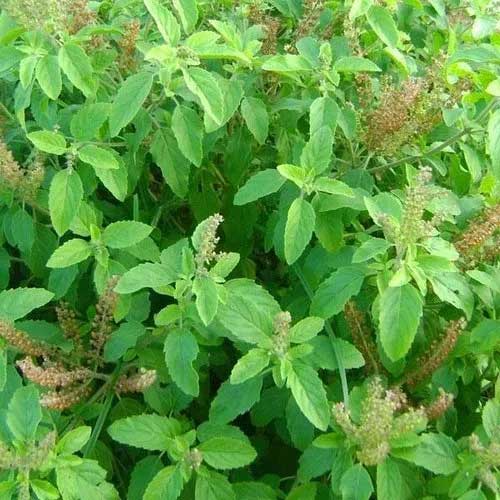
Tulsi, also known as Holy Basil, is a plant that has held a special place in the hearts and minds of people across cultures for centuries. Revered for its spiritual significance and revered as a sacred plant, Tulsi has also garnered attention from the scientific community due to its remarkable health benefits and medicinal properties. This article delves into the intriguing connection between Tulsi’s spiritual essence and its scientific attributes, bridging the gap between two seemingly distinct realms.
The Spiritual Essence of Tulsi: A Sacred Plant with Deep Roots
Tulsi is not just an ordinary plant; it holds a revered position in various spiritual traditions. In Hinduism, Tulsi is considered the “Queen of Herbs” and is believed to be an incarnation of the goddess Lakshmi. It’s commonly found in the courtyards of Indian homes, symbolizing purity and devotion. The plant is often worshiped and used in religious rituals, and its leaves are offered to deities and used in prayer beads.
Scientific Exploration of Tulsi’s Medicinal Properties
While Tulsi’s spiritual significance is well-known, its scientific attributes have also piqued the interest of researchers worldwide. The leaves of Tulsi contain compounds known as phytochemicals, including flavonoids, phenols, and essential oils. These compounds contribute to the plant’s distinctive aroma and flavor, as well as its potential health benefits.
1. Adaptogenic Properties for Stress Relief:
Tulsi is classified as an adaptogen, a natural substance that helps the body adapt to stress and maintain balance. Scientific studies have shown that Tulsi’s compounds can help regulate cortisol levels and improve the body’s response to stress. This aligns with the spiritual use of Tulsi as a calming and centering herb in meditation practices.
2. Antioxidant and Immune-Boosting Effects:
The phytochemicals present in Tulsi possess potent antioxidant properties, which help neutralize harmful free radicals in the body. Additionally, Tulsi has been found to enhance the immune system’s activity, supporting the body’s defense mechanisms. These attributes echo the spiritual belief that Tulsi purifies the body and strengthens the life force.
3. Anti-Inflammatory and Anti-Microbial Benefits:
Tulsi’s essential oils contain compounds like eugenol and ursolic acid, which have anti-inflammatory and anti-microbial properties. This makes Tulsi a potential ally in combating infections and promoting overall wellness. The plant’s healing attributes align with its spiritual role as a symbol of divine protection and well-being.
4. Respiratory and Heart Health:
Tulsi is known to support respiratory health by helping to clear congestion and soothe the respiratory tract. It’s also believed to have a positive impact on cardiovascular health by promoting healthy blood circulation. These health benefits resonate with the spiritual belief that Tulsi enhances vitality and life energy.
Harmony Between Science and Spirituality
While the spiritual and scientific aspects of Tulsi might seem distinct, they are not necessarily separate. In fact, they can complement each other to provide a holistic understanding of this remarkable plant.
1. Synergy of Mind and Body:
Tulsi’s spiritual significance as a tool for meditation and mindfulness aligns with its adaptogenic properties that help manage stress. By promoting relaxation and a sense of calm, Tulsi supports both mental and physical well-being.
2. Holistic Wellness:
The spiritual practices involving Tulsi, such as consuming its leaves or tea, can also contribute to the plant’s medicinal benefits. Ayurveda, the ancient Indian system of medicine, recognizes the interconnectedness of the body, mind, and spirit. Consuming Tulsi can provide both physical nourishment and spiritual upliftment.
3. Respecting Nature’s Wisdom:
Both the spiritual and scientific perspectives encourage a deeper connection with nature. Science helps us understand the chemical compounds that contribute to Tulsi’s effects, while spirituality reminds us of the sacredness of the plant and its role in promoting harmony within and around us.
Tulsi, with its rich spiritual heritage and scientifically validated properties, serves as a beautiful example of how the realms of science and spirituality can converge. The plant’s ability to heal and uplift aligns with its symbolic role in promoting holistic well-being. Embracing both perspectives allows us to appreciate Tulsi’s multifaceted nature and the profound ways it can positively impact our lives, bridging the gap between the material and the spiritual.






